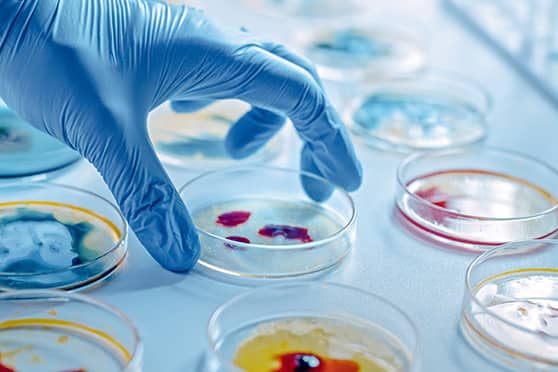Careers in Microbiology: What to study and how you can make our planet more habitable


Are you one of those who want to work with microorganisms like viruses, bacteria, fungi and algae? For that you’ll have to study a highly sophisticated branch of Biological Sciences, called Microbiology. Your work could be used to anticipate and prevent diseases, invent drugs or produce more food.
What is Microbiology
It’s the study of minute living organisms that cannot be seen with the naked eye. Diverse topics like nutrient cycling, biodegradation or biodeterioration, climate change, food spoilage, disease control and biotechnology rely on the knowledge of microbiology.
Scope of Microbiology
Microbiology deals with microbes whose adaptability allows them to be used in fields as diverse as the development of life-saving medicines, production of biofuels, clean-up of pollutants, and production and processing of food and beverages. The sheer variety of microbes has broadened the scope of work for microbiologists towards ensuring a healthy and habitable planet.
Why study Microbiology
What do you need to study Microbiology
You need at least 50% aggregate marks in your Class XII board exams with Physics, Chemistry and Biology as compulsory subjects to get admission to undergraduate colleges for a BSc in Microbiology. The cut-off marks for admission depends on individual colleges.
Popular colleges in West Bengal for BSc in Microbiology
How to go for MSc in Microbiology
You need a BSc in Microbiology, Zoology or Botany to pursue an MSc degree in Microbiology. For MSc and PhD programmes, most universities conduct their own entrance exams.
You can do your MSc from popular institutes like Calcutta University; St. Xavier’s University, Kolkata; Lady Brabourne College, Kolkata; Maulana Azad College, Kolkata; IIT Kharagpur; AIIMS New Delhi and Jawaharlal Institute of Postgraduate Medical Education and Research (JIPMER), Puducherry.
What to do with your Microbiology degree
After finishing your MSc, you can opt for a PhD and then get involved in postdoctoral studies and research. You can also join academics to teach students at the postgraduate level and devote yourself to research. Alternatively, you can join the industry and choose a sector, depending on your expertise and skills.
Here are some of the roles that you can go for after studying Microbiology:
Environmental microbiologist: They study how microorganisms interact with the environment and each other. They use microbes to clean up areas contaminated by heavy metals. They also employ microbes to facilitate crop growth.
Research assistant: These professionals work on projects that include microorganisms. They are employed in different fields like clinical biology, healthcare labs, climate protection bodies, agriculture and food testing labs. They support higher-level researchers in a variety of scientific pursuits.
Biomedical scientist: These scientists carry out a series of scientific and laboratory tests on tissue samples and fluids to help develop therapeutic solutions to life-threatening diseases.
Food technologist: These professionals check the processing and manufacturing of food to ensure quality. They check for microorganisms in food that may adversely impact human health.
Pharmacologist: They mainly work in the quality control and assurance department of pharmaceutical companies. Their main job is to ensure the quality of raw materials that are to be processed in the production area.
Veterinary microbiologist: They are veterinarians specialising in the study of microorganisms that cause infectious diseases in animals.
Industrial microbiologist: These professionals employ engineering and scientific principles to treat materials using microbes, plant and animal cells to create usable products or processes. They also monitor the impact of industrial waste on the local ecosystem.